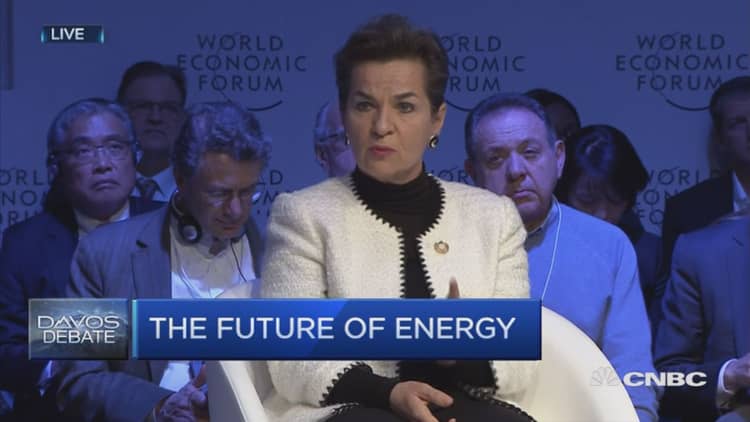
Renewables are just an excuse to use more coal in many countries, according to the president of the world's largest aluminium company, speaking on a panel discussing the future of energy at the World Economic Forum in Davos on Wednesday.
Until there is a compelling economic rationale for investors, Oleg Deripaska, president of Rusal, says no firm will change their strategy as shareholders will only support them as long as they stay on course to achieve the main goal of their companies, namely to produce a profit.
A key part of his solution, therefore, hinges upon the implementation of carbon pricing.
"We need to implement a carbon price, let's say tomorrow and maybe even escalate it a little to show a strong signal for people that it will be done properly," he contended.
The gamechanging potential of carbon pricing resonated with Patrick Pouyanné, chairman and chief executive officer (CEO) of French oil and gas giant Total, who told the audience that forcing the wider population to become much more efficient was a key factor in responding to climate change.
Highlighting the cheapness of coal compared to renewables, he argued "if you don't put a price on CO2 it will never happen because investors are rational people."
In response, Christiana Figueres, former executive secretary of the United Nations Framework Convention on Climate Change, revealed that the Paris agreement on climate change drawn up at the COP 21 conference in December 2015, did not mandate carbon pricing but rather looked to countries to implement such an idea themselves.
"I see very much a bottom up approach to carbon pricing," Figueres began, adding, "the trick here is how do you use a bottom up approach that allows everyone to participate?"
Fellow panelist Nur Bekri, director of China's National Energy Administration, said that progress made by his country may be slow but was truly underway.
"We have not met the expectations of the world but at the same time all these figures are quite incredible," he noted, pointing to progress made in developing certain alternatives such as wind.
"To get rid of coal right away is quite infeasible in China," he said, acknowledging the limitations of how quickly his coal energy dominated country could move to a fully renewables-based model.
"When we talk about clean energy we cannot have a one-size-fits-all model," he continued.
The immense task facing the world was emphasized by Figueres, who bemoaned the lack of urgency.
"We need to step up both speed and scale," the renowned climate change expert asserted.
"We need to be at the maximum of greenhouse emissions by 2020. That sounds practically impossible."






